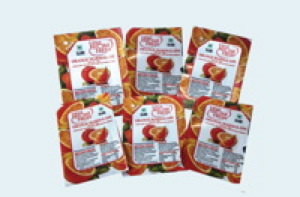Cosmo Films Launches Lidding Films
- Published: November 22, 2016
DELHI, INDIA | Cosmo Films, a manufacturer of specialty BOPP films, announced the launch of BOPP-based Universal Lidding Films said to be suitable for heat sealing to any of the rigid thermoformed cups/containers made up of PP/HIPS/PET/PVCor PE. The films are generally used for lidding of unit packs of packaged drinking water, juice, yogurt, jelly, jam, marmalade, butter, etc., as well as trays used for packing salads, meals, and fresh fruits, etc. 
According to company, while the different products available in the market for lidding generally are aluminum foil/PE or PET/PE structures, BOPP used for lidding applications scores over its counterparts in terms of sustainability, yield, and therefore cost, better esthetics, and fold/flex resistance.
These films are available in white opaque cavitated and semi-transparent variants. BOPP film-based lids are safe for direct food contact as no solvent is involved and ingredients involved in the manufacturing of this product are approved by FDA. The films reportedly offer excellent peelability, printability with water- and solvent-based inks, and good moisture barrier properties.
The films are also said to be easily die-cut and punched and display good stiffness for dispensing. The films can be used for both in- and off-line lidding processes. The product is available in standard thickness of 50, 75, and 85 microns. Other microns are also possible on demand.
Cosmo CEO Pankaj Poddar says, “We saw both end consumers and printers facing challenges while using unit packs, especially for packaged drinking water. The consumers invariably found it challenging to peel open the pack without spilling and the label printers faced issues with finding the right adhesives for heat sealing of the lidding film. Looking at the need gap, we have developed a cost-effective universal product [in which] all the printer needs to do is to print, die-cut, and supply the film to the brand. The film can also be sealed at lower sealing temperatures of 140 to 150 degrees.”








